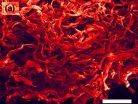(Press-News.org) While a debate was raging between scientists and government regulators on how best to explain to patients the risks of participating in clinical research studies that compare standardized treatments, a team of bioethicists boldly went where no experts had gone before -- to the public.
What the respondents said surprised them: Keep it simple, but always ask permission, even when the research only involves gathering data from anonymized medical records.
"We didn't anticipate that people would want to grant permission for medical record searches, a research method that involves much less risk than most randomized studies that compare standard treatment options," said Mildred Cho, PhD, professor of pediatrics and of medicine at the Stanford University School of Medicine. "The good news was that most people said they would forgo documented consent or accept simple approaches to granting permission, even verbal permissions, if requiring written agreements would hinder this type of comparative-effectiveness research."
A paper describing the findings of the patient survey will be published April 14 in the Annals of Internal Medicine. Cho, who is also associate director of the Stanford Center for Biomedical Ethics, is the lead author of the paper. Benjamin Wilfond, MD, professor and chief of pediatric bioethics at the University of Washington School of Medicine, is the senior author.
The findings will be used to inform the U.S. Office of Human Research Protections and the Food and Drug Administration as they develop regulations on how to structure patient permissions for research conducted during mainstream clinical care and through mobile devices.
The participants' perspective
The survey was the work of the Research on Medical Practices project, or ROMP, which was launched in the aftermath of a controversial research-consent form used in a study that compared two oxygen-delivery levels for extremely premature babies. While many researchers and bioethicists argued that the research was done in an appropriate fashion, others disagreed.
Even though these at-risk infants were randomly assigned to one of two standard treatment options, some people felt that the clinical risks of standard practices should be disclosed as research risks. Researchers, the public and the bioethics community were deeply divided about whether the consent form adequately warned parents about participation risks. The ROMP study was designed to gather evidence on patient attitudes toward risks and how to best ask for permission to conduct this type of research.
"Creating burdensome consent regulations for minimal-risk research may impede the collection of valuable medical evidence without actually increasing the protection of participants," said David Magnus, PhD, a co-author of the study and the director of the Stanford Center for Biomedical Ethics.
Cho, Magnus and other researchers involved in the project began collecting data in August 2013 through a Web-based survey of 1,095 adults. The survey included questions about attitudes toward research, doctors and health systems, as well as questions to assess understanding of research concepts, such as variations in prescribing patterns among physicians, randomization and informed consent. The survey also asked questions about preferences for being notified about studies, and their perceptions of risk and willingness to participate in the context of three scenarios. The three scenarios were presented in videos, which are available on the ROMP website.
During the process of developing and testing the videos and survey, the bioethicists learned a great deal about the best way to educate patients on medical research, Magnus said. "One of our first challenges was to dispel the 'doctors know best' myth. Doctors don't always know which treatments are best for individual patients," he said. "In the absence of good evidence, these choices are often influenced by advertising, insurance coverage and local preferences. Busting this myth was essential in explaining why comparative-effectiveness research is so important."
Hearing it from their doctors
One interesting survey finding was that people preferred that their doctors, rather than medical researchers, ask them whether they'd like to participate in research. This runs counter to conventional wisdom in the research community, where the participation of doctors in the recruiting process can be viewed as a potential conflict of interest.
For supporters of comparative research in clinical settings, it was encouraging to learn that 97 percent of the respondents agreed that health systems should conduct this type of research. "I think that patients really want us to make it easier for them to participate in research," said Magnus. "As medical research evolves, the ways that we engage and inform patients must evolve, too."
INFORMATION:
Some ROMP team members were recently awarded a grant from the National Institutes of Health to continue researching the ethics of informed consent. Next, they will be translating their educational videos into Spanish and Mandarin, and developing strategies and tools for educating patients from diverse ethnic groups about research that makes use of electronic medical records and stored biological samples.
The project is supported by the NIH National Center for Advancing Translational Sciences, Clinical and Translational Sciences Award to the Institute of Translational Health Sciences at the University of Washington (grant UL1TR000423) and to Spectrum, the Stanford Center for Clinical and Translational Research and Education (grant UL1TR001085).
The videos and information about the study are available at http://spectrum.stanford.edu/romp-videos.
The Office of Human Research Protections guidance on patient disclosure can be reviewed at http://www.hhs.gov/ohrp/newsroom/rfc/draftstandardreseach.html.
ANN ARBOR--Research led by the University of Michigan Life Sciences Institute has identified a gene critical to controlling the body's ability to create blood cells and immune cells from blood-forming stem cells--known as hematopoietic stem cells.
The findings, scheduled for online publication in the Journal of Clinical Investigation April 13, provide new insights into the underlying mechanics of how the body creates and maintains a healthy blood supply and immune system, both in normal conditions and in situations of stress--like the body experiences following a bone ...
DALLAS, April 13, 2015--The American Heart Association (AHA) released new recommendations today to address gaps in common standards around comprehensive workplace wellness programs (CWWPs). The recommendations improve the design, measurement and recognition of CWWPs, and, if adopted by employers, could significantly impact efforts to improve the cardiovascular health of the American workforce.
An advisory panel of experts in population and workplace health, cardiology and preventive medicine conducted the review, which includes an extensive evaluation of workplace ...
WASHINGTON, DC - A medicinal liquid form of marijuana may show promise as a treatment for children with severe epilepsy that is not responding to other treatments, according to a study released today that will be presented at the American Academy of Neurology's 67th Annual Meeting in Washington, DC, April 18 to 25, 2015.
The study involved 213 people, ranging from toddlers to adults, with a median age of 11 who had severe epilepsy that did not respond to other treatments. Participants had Dravet syndrome and Lennox-Gastaut syndrome, epilepsy types that can lead to intellectual ...
Tropical Cyclone Solo was dissipating over the Southwestern Pacific Ocean when NASA's Aqua satellite passed overhead on April 13, 2015.
On April 11 Tropical Cyclone Solo spawned warnings in New Caledonia as it passed by. By April 12, the warnings were dropped and wind shear had taken its toll on the storm weakening it.
On April 12 at 0300 UTC (April 11 at 11 p.m. EDT), the Joint Typhoon Warning Center (JTWC) issued their final bulletin on Solo. At that time it was 116 nautical miles north of Noumea, New Caledonia near 20.2 south latitude and 165.7 east longitude. Solo ...
Skin is remarkably resistant to tearing and a team of researchers from the University of California, San Diego and the Lawrence Berkeley National Laboratory now have shown why.
Using powerful X-ray beams and electron microscopy, researchers made the first direct observations of the micro-scale mechanisms that allow skin to resist tearing. They identified four specific mechanisms in collagen, the main structural protein in skin tissue, that act together to diminish the effects of stress: rotation, straightening, stretching, and sliding. Researchers say they hope to replicate ...
TAMPA, Fla. - Moffitt Cancer Center researchers have developed a new method to identify a previously unknown structure in a protein called MDMX. MDMX is a crucial regulatory protein that controls p53 - one of the most commonly mutated genes in cancer.
Known as the tumor suppressor gene, p53 protects the body from cancer development by ensuring that DNA remains intact and does not have mutations. If p53 senses DNA damage, it can either stimulate the cells to repair its DNA, or cause cells to stop growing and undergo cell death. Because of its functions, p53 is often ...
ATLANTA--Chimpanzees are capable of some degree of planning for the future, in a manner similar to human children, while some species of monkeys struggle with this task, according to researchers at Georgia State University, Wofford College and Agnes Scott College.
Their findings were published on March 23 in the Journal of Comparative Psychology.
The study assessed the planning abilities of chimpanzees, two monkey species (rhesus macaques and capuchin monkeys) and human children (ages 28 to 66 months old) using a computerized game-like program that presented 100 unique ...
A workplace intervention designed to reduce work-family conflict gave employed parents more time with their children without reducing their work time.
"These findings may encourage changes in the structure of jobs and culture of work organizations to support families," said Kelly Davis, research assistant professor of human development and family studies.
The research is part of the Work, Family and Health Network's evaluation of the effects of a workplace intervention designed to reduce work-family conflict by increasing both employees' control over their schedule ...
(Boston) - Emergency departments (ED) provide a promising venue to address opioid deaths with education on both overdose prevention and appropriate actions in a witnessed overdose. In addition, ED's have the potential to equip patients with nasal naloxone rescue kits as part of this effort.
These findings are from a study published in the Western Journal of Emergency Medicine, and is the first study to demonstrate the feasibility of ED-based opioid overdose prevention education and naloxone distribution to trained laypersons, patients and their social network.
In ...
PROVIDENCE, R.I. [Brown University] -- Researchers from Brown University and the University of Rhode Island have demonstrated a promising new way to increase the effectiveness of radiation in killing cancer cells.
The approach involves gold nanoparticles tethered to acid-seeking compounds called pHLIPs. The pHLIPs (pH low-insertion peptides) home in on high acidity of malignant cells, delivering their nanoparticle passengers straight to the cells' doorsteps. The nanoparticles then act as tiny antennas, focusing the energy of radiation in the area directly around the cancer ...

